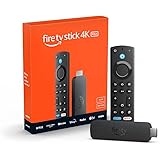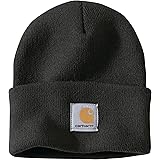Bible Verse Jar, Christian Gifts For Women, Birthday Gifts For Women, Bible Jar, Bible Accessories Women, Prayer Jar, Religious Gifts For Women, Gifts For Mom, Christian Gifts For Men
$18.99 (as of January 12, 2025 02:46 GMT +00:00 - More infoProduct prices and availability are accurate as of the date/time indicated and are subject to change. Any price and availability information displayed on [relevant Amazon Site(s), as applicable] at the time of purchase will apply to the purchase of this product.)Amazon Fire TV Stick 4K Max (newest model), our most powerful 4K streaming stick with Wi-Fi 6E support, 16GB Storage, free and live tv
$44.99 (as of January 12, 2025 02:46 GMT +00:00 - More infoProduct prices and availability are accurate as of the date/time indicated and are subject to change. Any price and availability information displayed on [relevant Amazon Site(s), as applicable] at the time of purchase will apply to the purchase of this product.)Carhartt Men's Knit Cuffed Beanie
$19.99 (as of January 12, 2025 02:46 GMT +00:00 - More infoProduct prices and availability are accurate as of the date/time indicated and are subject to change. Any price and availability information displayed on [relevant Amazon Site(s), as applicable] at the time of purchase will apply to the purchase of this product.)NSPENCM 85W Mac Book Pro Charger, Replacement AC 85w 2T-Tip Connector Power Adapter,Laptop Charger Compatible with MacBook pro & Mac Book Pro 13 inch-15 inch Retina After Mid 2012
$19.99 (as of January 12, 2025 02:46 GMT +00:00 - More infoProduct prices and availability are accurate as of the date/time indicated and are subject to change. Any price and availability information displayed on [relevant Amazon Site(s), as applicable] at the time of purchase will apply to the purchase of this product.)Amazon Fire HD 10 tablet (newest model) built for relaxation, 10.1" vibrant Full HD screen, octa-core processor, 3 GB RAM, 32 GB, Black
$139.99 (as of January 12, 2025 02:46 GMT +00:00 - More infoProduct prices and availability are accurate as of the date/time indicated and are subject to change. Any price and availability information displayed on [relevant Amazon Site(s), as applicable] at the time of purchase will apply to the purchase of this product.)In today’s fast-paced world, maintaining a healthy lifestyle has become increasingly important. With the rise of wearable technology, fitness trackers have revolutionized the way we monitor our physical activity and stay motivated to reach our goals. In this article, we’ll delve into the world of fitness tracking, exploring the features, benefits, and technical specifications of some of the best devices on the market.
What is a Fitness Tracker?
A fitness tracker, also known as a pedometer or activity tracker, is a wearable device that monitors various aspects of your physical activity, including step count, distance traveled, calories burned, and heart rate. These devices typically feature a sleek design, comfortable wearability, and intuitive user interfaces.
Key Features to Consider
When selecting the perfect fitness tracker, there are several key features to consider:
- Step Tracking: Accurate step tracking is essential for monitoring daily activity levels.
- Heart Rate Monitoring: Continuous heart rate monitoring provides valuable insights into your physical condition.
- GPS Capabilities: Built-in GPS enables accurate distance tracking and route mapping during outdoor activities.
- Water Resistance: Water-resistant devices allow for swimming, showering, or sweating without worrying about damage.
- Notification Support: Receive alerts for calls, texts, emails, and social media notifications directly on your wrist.
Top Fitness Trackers Compared
Here’s a comprehensive comparison of some of the best fitness trackers available:
- Fitbit Charge 3
- Processor: MediaTek MT2601
- RAM: 512 KB
- Storage: 4 MB
- Battery Life: Up to 7 days
- Water Resistance: 50 meters
- Features: Heart rate monitoring, GPS, sleep tracking, guided breathing sessions
- Garmin Vivosport
- Processor: Garmin Connect IQ
- RAM: 128 KB
- Storage: 16 MB
- Battery Life: Up to 7 days
- Water Resistance: 50 meters
- Features: GPS, heart rate monitoring, stress tracking, music storage
- Apple Watch Series 5
- Processor: Apple S5
- RAM: 1 GB
- Storage: 32 GB
- Battery Life: Up to 18 hours
- Water Resistance: 50 meters
- Features: GPS, heart rate monitoring, ECG app, built-in music storage
Smartwatches vs. Fitness Trackers
While both smartwatches and fitness trackers offer impressive features, they cater to different needs:
- Fitness Trackers: Focus on tracking physical activity, sleep, and nutrition.
- Smartwatches: Offer a broader range of features, including notification support, music control, and mobile payment capabilities.
Tips for Choosing the Right Fitness Tracker
When selecting a fitness tracker, consider your specific needs and preferences:
- Determine Your Budget: Set a price range to narrow down your options.
- Assess Your Activity Level: Choose a device that caters to your physical activity level (e.g., running, swimming, or yoga).
- Consider Compatibility: Ensure the device is compatible with your smartphone operating system.
Conclusion
Fitness trackers have revolutionized the way we monitor our physical activity and stay motivated to reach our goals. By understanding the key features, benefits, and technical specifications of top devices on the market, you’ll be well-equipped to choose the perfect fitness tracker for your needs. Whether you’re a casual user or an avid athlete, there’s a device out there that will help you achieve your health and wellness objectives.
Technical Specifications:
- Fitbit Charge 3: MediaTek MT2601 processor, 512 KB RAM, 4 MB storage
- Garmin Vivosport: Garmin Connect IQ processor, 128 KB RAM, 16 MB storage
- Apple Watch Series 5: Apple S5 processor, 1 GB RAM, 32 GB storage










